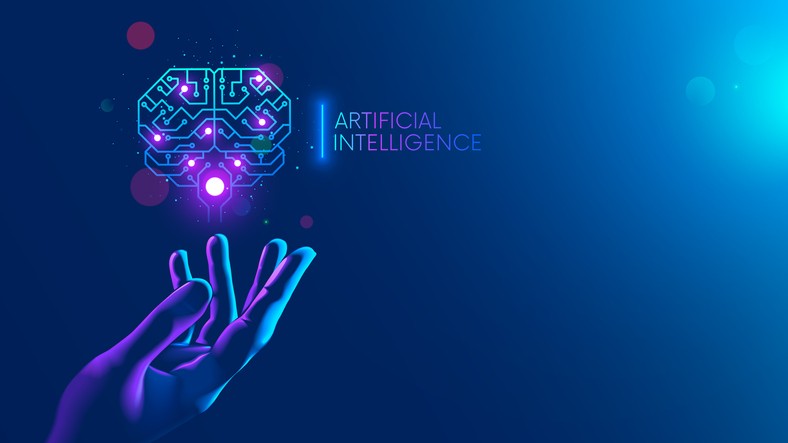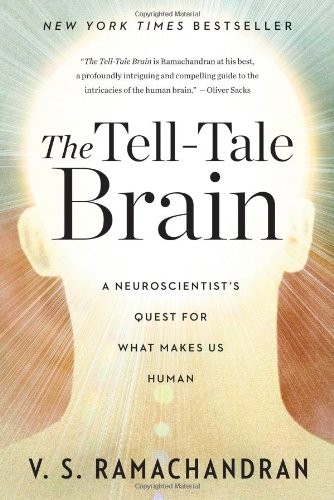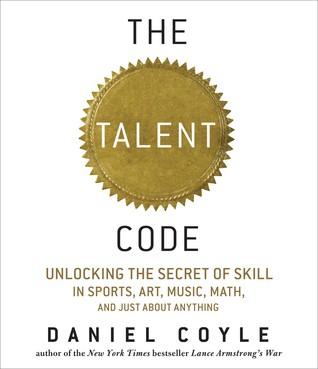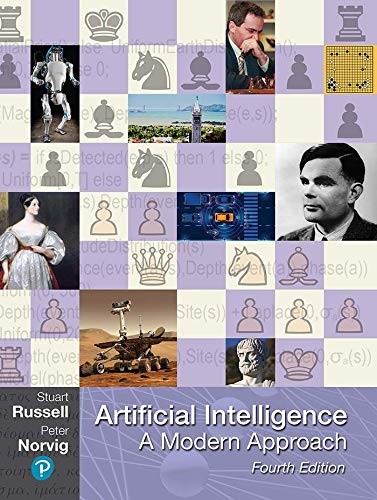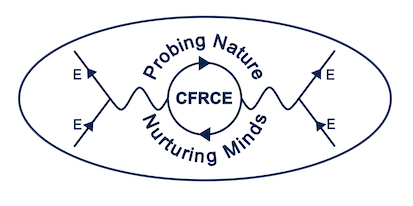CFRCE
7th Grade student Mastering Neuroscience, AI and Machine Learning and Russell and Norvig's 1136 Pages Massive book, "Artificial Intelligence"
He had always been interested in understanding how the brain works. Right from his school days, he had been dreaming of becoming a neuroscientist. But then, he also wanted to learn how an intelligent robot would function. There was only one problem: his mother fondly wanted him to become an oncologist as she thought Cancer research was more prospective than brain research. But Vivek Rao (name changed to protect identity and from general publicity) was adamant. He wanted to study about brains, computers and robots. And not just that he was already building robots. What then was preventing him from pursuing his dream, apart from his mother's wishes?
The reasons were surprisingly not that of his mother's wishes. For, though she did want her son to become an oncologist, it was not that he went against his own inclinations. She, more than anyone else, wanted him to pursue whatever he was interested in, her wishes notwithstanding. But she also realized that there was one problem. What was that?
No doubt, Vivek was already into building robots. However, these were of the kind most kids would anyway be doing, programming with Arduino. And that certainly was becoming more and more commonplace. Vivek himself realized that very soon. And that realization began to make him disappointed and despondent. Noticing his state of mind, his mother asked him,
"Vivek, I think something is bothering you. You no longer seem to enjoy building robots. You are no longer reading about the brain and other science topics you used to..."
Vivek sighed and said, "Mom, I am actually bored, very bored. I have built so many robots...but so have most of my friends. These robots are not what I really want to build. I want to build intelligent robots."
"Ah, my son, I understand. To build intelligent robots...you will need to study computer science, especially artificial intelligence and machine learning and deep learning. And for that you need to learn more of programming...more than the Arduino you already know."
"I know that, Mom, I have been trying to find out about computer science, AI and Machine Learning. But there is so much information...it is confusing rather than helpful. And at school, they don's talk about any of it."
Vivekh's mother became very thoughtful. She decided he needed guidance, a systematic guidance if available. She began to check out various forums and groups and other organizations that could take in young kids like Vivek and teach them the topics they were interested in.
Very soon, she saw that most often, organizations and groups wanted kids to fit into their existing structured programs. The problem was, Vivek was not one to comply. He was fiercely independent and would get restless with any preset program.
"There are two ways to think about ourselves. One is as biological organisms, products of evolution and natural selection. From this point of view, humans are defined by our genes, and the purpose of life is to replicate them. But we are now emerging from our purely biological past. We have become an intelligent species. We are the first species on Earth to know the size and age of the universe. We are the first species to know how the Earth evolved and how we came to be. We are the first species to develop tools that allow us to explore the universe and learn its secrets. From this point of view, humans are defined by our intelligence and our knowledge, not by our genes. The choice we face as we think about the future is, should we continue to be driven by our biological past or choose instead to embrace our newly emerged intelligence?"
― Jeff Hawkins, A Thousand Brains: A New Theory of Intelligence
Fortunately, one of Vivek's cousins had graduated from the Carnegie Mellon University and had just joined the Apple Inc Innovation group at Georgia, Atlanta. Vivek's mother talked to him.
Vivek's cousin told Vivek's mother that before he had joined Carnegie Mellon University, he had been a student of the CFRCE Advanced Learner's program for four years right from his 9th grade. And the learning he had undertaken at CFRCE had propelled him to phenomenal levels of learning including leading his school robotics teams twice, one to Japan and another to Atlanta, USA. After that, the project he had worked on had secured admission to 13 topmost universities he had applied for. In fact it had been very difficult to reject most of the universities and finally make the choice of joining the Carnegie Mellon University. He strongly suggested that Vivek would do best to join CFRCE.
Vivek's mother was a bit hesitant. She told Vivek's cousin that Vivek was just in his 7th grade. Was it not better to wait till his 9th grade and then apply for the CFRCE program? Because, first of all, Vivek was still too young. And secondly, what if he applied and was not selected for the CFRCE program? The disappointment would dampen his enthusiasm especially since he was already bored and disappointed at the robotics he was engaged in.
Vivek's cousin spoke, "Aunty, no doubt I joined the CFRCE programin my 9th grade. But that was unfortunate. Unfortunate because I had not known of CFRCE earlier. It was only by chance that my father got to know and immediately rushed me to apply to CFRCE. If I had joined in the 7th grade, I would have learned even earlier and not lost the two years doing meaningless programs like ordinary computer programming. Vivek is really lucky you have got to know of CFRCE when he is in his 7th grade. I suggest you get him to apply to to CFRCE Advanced Learner's program. And don't worry about him not making him or not to CFRCE. I know Vivek will make it. He is extremely independent minded, reads a lot and has great interest and passion. It is only such students who get selected to the CFRCE programs."
Vivek's mother, then and there, made up her mind. She took an appointment to have a video call with the program director.
As soon as they bean their video call meeting, Vivek's mother was surprised to see that Vivek himself began the conversation. Normally he was a shy and hesitant child. But today he seemed charged up.
"I am interested in Neuroscience…but…my mother says it is more prospective to be an oncologist. Cancer research is very lucrative I understand but I am not interested in that. I want to know about the brain. I have many ideas that I want to develop them further." Vivek introduced himself. Actually, there was a background to Vivek's initiative in beginning the conversation.
A few months ago, Vivek Rao had just completed his 6th grade and was entering his 7th grade. It was still vacation time and school was yet to begin. He had heard from a friend who lived in the same apartment as him that there was a place where he could actually study Neuroscience if he was really passionate about. That was CFRCE. Vivek was thrilled and apprehensive at the same time. Thrilled to know it was possible for him to study Neuroscience. Apprehensive whether he would be given admission. His friend asked him to talk to the people there. So Vivek had already heard about CFRCE and was eager to know more. And as if his mother had grasped his unspoken thoughts, she had now got him to meet the program director. That was how Vivek now happened to be talking to the program Director about his great passion for Neuroscience.
"It is really nice to know about your interest in Neuroscience," the program Director spoke extending a warm welcome to Vivek. "Neuroscience is a great field with numerous sub branches. I myself am very passionate about it. Do you have an idea which areas you want to do learn and master…"
Vivek was excited to know that the program Director was taking him seriously, was talking to him on equal terms as he would to another adult. So far no one had done that. Everyone he spoke to took him to be just interested in Neuroscience. The program Director on the other hand was asking him which areas he was interested to learn and master! He was taking him really seriously.
"I am passionate about Cognition…" Vivek replied. "I want to study Cognitive Neuroscience. I am also interested in Emotion and the Brain…and after learning more about these…I want to go into Artificial Intelligence and Machine Learning."
"That would be great." The program Director agreed. "You can certainly learn and master Cognitive Neuroscience, Emotion and the Brain and later move on to Computer Science to study Artificial Intelligence and Machine Learning."
"Sir, can he really do that…" Vivek's mother was apprehensive.
"Of course, he can as he is so interested and passionate about Neuroscience." The program Director affirmed. "And moreover, he is already clear on which areas he wants to work on. Cognitive Neuroscience is a great field to start with."
"But he is so young…just in his 7th grade…" Vivek's mother was hopeful but nevertheless wanted to be certain Vivek was on the right track.
"His intellectual maturity appears to be beyond his physical age." The program Director remarked. "But anyway we can easily ascertain that right away."
"Vivek," The program Director looked at him, "have you been reading or looking up on Neuroscience?"
"Yes," Vivek nodded. "I have been going through the internet and looking up videos and articles on the brain."
"That's great." The program Director smiled. "Why don't you help us understand how you are able to learn on such advanced topics at your age…why not tell us something about the brain frequencies…you know…the beta, alpha…"
"Theta and delta." Vivek completed the program Director's sentence as his mother was looking on astonished. He continued, "the human brain has four frequency states, beta, alpha, theta and delta. These four states could be compared to four gears of a car. Beta is the first gear, alpha the second, theta the third, and delta the fourth. When a child is born he is in the delta state till the age of five. From five to seven he is in the theta state, seven to fourteen in the alpha state and fourteen onwards in the beta state. Now a car in the first gear is slowest and consumes maximum power. In the second gear it picks up speed and consumes lesser power. In the third gear it picks up much more speed and consumes even less power. In the fourth gear it really speeds up and consumes least power. It follows that younger one is the faster one can learn, not the other way around. I am now around 11 years and therefore my brain is more in the alpha state. Obviously I can learn really fast compared to a grownup. I think my brain speed compensates for lack of experience. I have read and understood these things. If I get a chance to join CFRCE I want to really go in depth into these, especially about what I have read as the gamma brain frequency."
The program Director turned to Vivek's mother. "Vivek has a well developed mature intellect ready to take on topics beyond the norm. What he has just explained about the brain states clearly demonstrates that."
Just then, Vivek's father who had just entered the room to join the meeting, came up to the screen, excused himself for the delay and greeted the program Director. Apparently, he had overheard what the program Director had just said about Vivek and was immensely pleased. The program Director spoke a little more on Vivek's intellectual maturity and how he was actually ready to take on much higher level topics.
Both Vivek's mother and father were overwhelmed by the program Director's comment. They looked at him with reverence. "Can Vivek then join your program? If so which would be the right program for him?"
"Without doubt the Accelerated Learner's Program or the Advanced Learner's Program." The Coordinator replied.
"What is the difference between the Accelerated Learner's Program and the Advanced Learner's Program?" Vivek's father enquired.
"The Accelerated Learner's Program is a superfast learning program that takes an intellectually mature and purpose-driven student years and decades ahead of convention. The Advanced Learner's Program also does exactly that with only one difference. It is designed more for students of the International Syllabus like IB or IGCSE who also require to consolidate their learning in the form of articles, research papers or to participate in summer schools of foreign universities. The difference is mainly one of structure."
"And how does that difference affect the student's development?" Vivek's father was curious.
"In the Accelerated Learner's Program, the student has the full freedom to learn without being bothered to fulfil the parents expectations outwardly. That is, the student can give complete attention to learning at the superfast rate. This may result in the student going decades ahead. Here the flow or optimal experience of the student is total as no outward expectations disturb the stupendous intensity that the student generates. In the Advanced Learner's Program on the other hand, parental expectations are more and therefore, the student needs to take a slightly more balanced approach. One such student of CFRCE is there who even in the Advanced Learner's program has attained such a balance. So as I pointed out, the difference is mainly of structure."
"I think we would like to have Vivek take on the Advanced Learner's Program then. As he is an US citizen, unfortunately he has not much options to study in India as the IITs are closed to him. So at least for his undergraduate and graduate studies he needs to go abroad. It would be helpful for him to have his learning consolidated in the form of articles, research papers and also to participate in summer schools. As to our expectations, we leave it entirely to him to learn unhindered guided wholly by CFRCE and his own intrinsic drive. Is it too much to think that he can go decades ahead?" Vivek's father laughed heartily. Vivek's mother looked on, beaming at Vivek.
"No…not at all." The program Director assured. "Your thoughts are perfectly justified. The way he has developed so far is itself proof of how much care, freedom and independence you have bestowed on him."
"And if he gets the guidance of CFRCE, myself and his mother will leave it entirely to his own drive and only step in to support him wherever necessary." Vivek's father affirmed. His mother nodded in approval.
After a little more discussion Vivek and his parents took their leave thanking the program Director warmly.
In the very day that followed the meeting, Vivek wrote his Statement of Purpose (SOP) and submitted his application form to the Advanced Learner's Program. The following was an excerpt from his SOP.
"Ever since I first began to think on scientific topics I was intrigued by the nature of intelligence. I wanted to know everything about the brain. How a human brain differs from that of a cat or a cockroach. I felt their brain also had an intelligence though of a different kind. People think human intelligence is of the highest kind. But my observations of other creatures convinced me that we don't know enough neither to qualify nor quantify intelligence. We need some parameter to do that. But trying to do so hastily does not do justice to the complexity of the brain whether human or other. After pursuing numerous sources and studies on the brain I have come to a working hypothesis. "Intelligence is that which can be quantified more through language than through numbers. But once that is done, the language can be quantified in numerical terms." I don't know how to go about proving this hypothesis. I am sure CFRCE is the right learning platform for me to explore this hypothesis and build on it to understand the nature of intelligence and the brain…
…I eagerly look forward to be given an opportunity to become a student of the Advanced Learner's Program."
Vivek's application and SOP were reviewed by five members of the Admission Board who happened to be scientists drawn from eminent universities across the world. Their recommendation was unanimous. Vivek''s intellectual maturity was beyond his years. Given the highly charged and conducive environment and support of CFRCE, he would accelerate in his learning. They warmly recommended that he be given admission into the Advanced Learner's Program.
Soon, Vivek was admitted into the program and almost immediately, initiated into Cognitive Neuroscience. His mentor enthusiastically encouraged him to start off on a study of Phantom Limbs as a special topic of inquiry right from the first day. He also introduced Vivek to other mentors among the faculty so that he could benefit from interaction. Vivek began browsing the links for books on Neuroscience sent to him by his mentor. His attention was caught by the book by V S Ramachandran, "Phantoms in the Brain." Recalling that the mentor had just suggested the topic of phantom limbs for his inquiry, Vivek got hold of the ebook and began to browse through. The ebook was fascinating right from the beginning. He realized that V S Ramachandran was a great neuroscientist and heartily agreed with Sir Oliver Sacks that he was the Marco Polo of Neuroscience. Vivek took his iPad to a nice cozy corner table in his room, to read.
He soon became absorbed in reading the book. He was in a state of complete flow or optimal experience. He did not even realize when his mentor had messaged and come online on the platform and was waiting for him to connect on the call. After a few minutes, Vivek realized that his mentor had messaged him and was awaiting him to connect over the call. He hurriedly connected and as soon as his mentor appeared on the video call, said somewhat apologetically. "I am sorry Sir, I did not realize you had come."
"Oh, that is perfectly fine," his mentor reassured him. "I did not at all expect you to do so. At CFRCE, we do not let the deep flow a student is in to be interrupted. So we wait for the right time to intervene if the student needs any help and we don't interfere just for the sake of interaction."
Vivek was surprised. At school, it was the students who spoke like that to the teachers. Here, the mentor was giving him the respect and dignity that he was used to, or rather forced to be giving the teachers. The mentor continued, "By your look I can see that you have been reading "Phantoms in the Brain." That's a wonderful book. It is one of my favorites. I have read all of V S Ramachandran's books. His latest book, "The Tell Tale Brain" goes even deeper than this. But this particular book has a special flavor. Please go ahead. You can go back to your reading and message me when you want. I will be online for some more time just in case you may want to talk to me."
Vivek again immersed himself in the reading. As he read he could not stop wondering at the magical effect of the CFRCE online platform and atmosphere. His thoughts on this fact mixed with that of the content of the book. Filled with a serene joy, he paused and began to reflect.
"How is it that learning at CFRCE is so very different from doing the same thing at school. Surely, reading as an activity is the same thing whether I do it here or at school. There must be an explanation, why, in neuroscience itself."
He then recalled what his favorite hero Sherlock Holmes had said, "It is a capital mistake to theorize before one has data. Insensibly one begins to twist facts to suit theories, instead of theories to suit facts." So he decided to note carefully the effect the CFRCE online environment was having on him. After a short while he came to a conclusion. The effect was real and patent. There was something profound in the online environment that was quickening all his impulses of learning. It was as if his learning was coming alive as an instinct rather than a skill. Perhaps it was because everyone at CFRCE were carrying out learning with a great purpose. There was no one who were just there with a casual attitude. All were charged up with a sense of the grandeur and glory that learning would bestow on them. Still, Vivek thought it helpful to ask someone about it. After continuing to read for a little more time his mentor came online and spoke to him of another student who was engaged in similar studies. He also encouraged Vivek to message and have a call with him.
Soon, Vivek was having a call with the other student.
"Hello, I am Pradeep." "Hello, I am Vivek," Vivek greeted him in turn and said, "I have just joined the CFRCE program. This is my first day."
"Nice to meet you," Pradeep responded, "What are you interested in?"
"Oh, my main interest is Neuroscience. Right now I am focusing on Cognitive Neuroscience." Vivek replied and remarked, "what are you working on?"
"I am working on Theoretical Physics, Geometric Quantum Mechanics, to be precise." Pradeep spoke.
"Oh, seeing the book you are having I thought you must be working on psychology." Vivek said.
"Ah, this book, "The Talent Code,"" Pradeep said. "I am reading this because my mentor suggested it to me. As you know at CFRCE, personal development goes hand in hand with technical development. My mentor said this book was one of the best to absorb the meaning of Deep Practice."
"Deep Practice!" Vivek asked quizzically. "Yes, Deep Practice." Pradeep nodded. "In Performance Psychology it is also known as Deliberate Practice. Another term for that is Purposeful Practice. This book debunks the idea that practice makes one perfect. As Daniel Coyle puts it so forcefully I this book, Practice does not lead to perfection. Only Deep Practice does. Deep Practice builds myelin and myelin leads to perfection."
"Oh, I did not realize myelin played so important a role." Vivek commented. "You know about myelin?" Asked Pradeep. "Of course, it is a common term in neuroscience," Vivek replied, "Myelin is white matter as opposed to grey matter. I have known about myelin in the context of ALS or motor neuron disease, like that which Stephen Hawking has. Loss of myelin leads to degeneration of the bone etc. But it is great to know that myelin is also responsible for Deep Practice. I think I will also look up this book. I will ask my mentor whether I can read this."
"By all means, read it. You don't have to ask your mentor for that. Even if you do I am sure he would encourage you to read it." Pradeep said. Vivek was once again pleasantly surprised. At school there was no question of him choosing to read what he wanted. Here, they encouraged him to do so. "Anyway it would be good to ask my mentor", he thought. And true to Pradeep's words, his mentor warmly encouraged him to go ahead and read the book. His mentor reassured him, "At CFRCE you are completely free to follow upon your learning instinct. Let your flow experience lead you. Let your inner mentor come alive and take you to heights and depths that no external mentor can. In doing so you learn to trust your inner guidance mechanism."
As Vivek looked at the mentor happily, his mentor continued. "I am not telling you to follow upon your learning instinct just to encourage you. It is a neurological fact. I a sure, you would have come across that the human brain had what is known as a psycho-cybernetic system, a kind of homing mechanism that can guide one unerringly onto the object of learning provided one has primed oneself by great inspiration and purpose."
Vivek had not come across that. It was nice to know that even in his field interest, -neuroscience, there was so much to learn and moreover, here, the mentors were putting so much of it into practice…
As weeks passed, Vivek began to penetrate the whole field of neuroscience in a comprehensive manner. His notes on his observations and inquires grew in volume. He began to make extensive connections between his discoveries. He soon moved on to a study of Intelligence from the book by Jeff Hawkins and then onto a handbook of Applied Cognitive Neuroscience. And just as his first academic year at CFRCE was coming to a close, he emerged an expert on cognitive neuroscience. The seminar that he gave kept the audience spellbound. Though prepared with extensive power point slides, Vivek ignored the slides and let his flow take hold of his speech and gave a presentation that was truly marvelous. That seminar was also the first professional seminar he had given. Vivek Rao had emerged a bright young neuroscientist in the making…
…And the very next academic year, he had conquered another great field, Artificial Intelligence and Machine Learning via Python programming from the huge book by Russell and Norvig and programming via Tensor Flow from a dedicated computer program his mentor had facilitated and sent to him…and was soon into another fine topic, -Computational Complexity…
The purpose of the Advanced Learner's program had been fully justified by having Vivek Rao as one of the most worthy students who had set himself on the path of actualizing his deepest potential.
Stay Informed
When you subscribe to the blog, we will send you an e-mail when there are new updates on the site so you wouldn't miss them.
